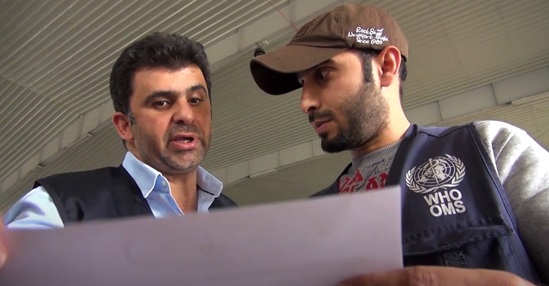
Guiding principles
On 12 May 2020 medical and hygiene supplies arrive at the De Martini COVID-19 isolation center in the Banaadir region of Somalia.
1
Best value for money
The overall guiding objective for all WHO procurement is to obtain the best value for money for the Organization. 'Best value for money' is defined as the offer that is the best combination of technical specifications, quality and price. 'Best value for money' is the result of several factors, including quality, experience, the supplier’s reputation, life-cycle costs, benefits and parameters that measure how well the good or service allows the organization to meet its social, environmental or other objectives.
2
Fairness, integrity, transparency and equal treatment
The WHO procurement process must allow for transparent competition among prospective providers. All prospective providers must be treated equally. All individuals and entities directly or indirectly associated with the procurement function are responsible for protecting the integrity of the process and maintaining fairness, transparency and equal treatment of all prospective providers. All potential providers should be treated equally, and the process should feature clear evaluation criteria, unambiguous solicitation instructions, realistic requirements, and rules and procedures that are easy to understand.
In order to promote transparency of the procurement process and accountability, WHO expects its providers to adhere to the principles, and meet the standards, set forth in the UN supplier code of conduct.
3
Effective competition
The objective of WHO’s competitive process is to provide all eligible prospective providers with timely and adequate notification of WHO’s requirements and an equal opportunity to tender for the required goods and services.
For this purpose, WHO publishes most of its tenders on the United Nations Global Marketplace.
4
Interest of WHO
All procurement conduct and acquisitions must always be in the best interest, and consistent with the objectives and expected results, of WHO. Any business transactions must conform to the mandates and principles of WHO and the United Nations.
5
Sustainable Procurement
Sustainable Procurement is defined by as “requirements, specifications and criteria that are compatible and in favour of the protection of the environment, of social progress and in support of economic development, namely by seeking resource efficiency, improving the quality of products and services and ultimately optimizing costs”. WHO shall consider sustainable procurement to the extent possible within the context of the goods or services being purchased as well as any specific country, industry or supply market conditions.
WHO procurement processes may thus include requirements or criteria related to the following:
- Environmental factors: climate change mitigation and adaptation; prevention of pollution; sustainable resources; protection of the environment and the biodiversity.
- Social factors: human rights; labour rights; gender equality; supplier diversity; disability inclusiveness and accessibility; sustainable consumption; social health and well-being. Where relevant, WHO will encourage diverse suppliers to participate in its tender opportunities, including women owned businesses (WOB), disability-inclusive suppliers and other diverse suppliers e.g. youth owned businesses (YOB), or those belonging to indigenous or LGBTQI+ groups.
- Economic factors: whole life-cycle costing; local communities and micro, small and medium enterprises; supply chain sustainability.

